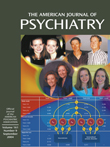To the Editor: I appreciate the opportunity to reply to several issues raised by Dr. Rothschild. First is my taking him to task for nondisclosure of a financial conflict of interest. When I wrote my review of Dr. Rothschild’s chapter, he had declared “a financial interest in Corcept Therapeutics” in a published article
(1). Only recently did he clarify that “in the past, he has been a consultant to and received research grants from Corcept Therapeutics”
(2). If Dr. Rothschild had provided a similar statement in the chapter in question, this issue would not have arisen.
Second is whether financial disclosures should be required in book chapters. I believe they should. Financial disclosure is a major issue now; e.g., following a recent exposé of the nondisclosure of several major financial conflicts in a review of depression treatments
(3), the Nature Publishing Group extended its disclosure requirement to review articles
(4). Other journals have expanded their disclosure policies to cover all published material, and public interest groups have lent their voice in support
(5). Nevertheless, violations continue to surface; e.g., the controversy over nondisclosure in an article in the
Lancet suggesting a link between measles-mumps-rubella vaccinations and pervasive developmental disorder in children
(6). Even full disclosure, however, is not a panacea
(7).
Third is the questionable efficacy of mifepristone in psychotic depression in contrast to Dr. Rothschild’s statement of its use in “rapidly reversing psychotic major depression.” In the two published studies on this issue, there was no significant drug effect
(1,
8). In the first study (8), two placebo cells were eliminated because they were considered a drug carryover effect, and an independent-samples analysis apparently was performed, even though the data were paired (subjects were their own control subjects). My independent, paired-data analysis yielded a clearly nonsignificant difference. In the second study, no statistical analysis at all was presented. My analysis of those outcome data again yielded a clearly nonsignificant difference. As well, the April 2004 initial public offering filed with the Securities and Exchange Commission by Corcept Therapeutics
(9) indicates that even in large double-blind trials, only a small number of patients became asymptomatic, with no significant difference between drug and placebo. Does this medication, then, warrant the paean of “ECT in a bottle”
(10)?

